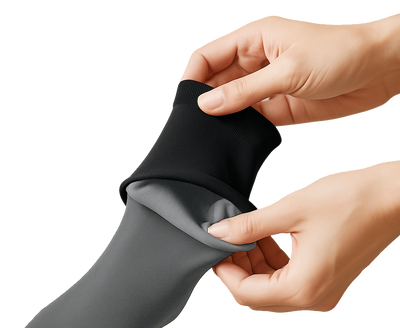National Physicians Week

As you may remember from the previous blog posts, we celebrated National Women Physicians Day on 3th of February. But not to exclude men from being acknowledged for their great efforts in providing care and help to people in need, we celebrate the National Physicians Week from March 25th until March 31st.
In the year behind us, more than ever before, we observed the importance and necessity of good organization of a health care system, as well as professional and dedicated medical staff. But… At the end of the day, doctors and health care workers are just human beings. They are not immune to stress, work burnouts, due to high level of responsibility. So, let’s take a moment to give them the appreciation and acknowledgment that they deserve.

A story about a physician profession
Although we all recognize the importance of the medical profession, not all of us know much about its history and development. The medical profession is one of the oldest professions in the known human history, with its beginning dating back to 25 000 years B.C. Ancient healers curing people with herbs, balms, and other natural medicine were depicted on the walls of the caves in France. Fast forward 24 000 years, in 500 B.C, the still-famous Hippocrates was born and was spreading the word about medicine and the ethical responsibility of doctors in providing help for people in need. The biggest legacy of Hippocrates life and work is the Hippocratic Oath. It is historically the most important medical text, that we can still see today in almost all of the doctor’s offices.
First medical schools and hospitals across Europe were established in the 12th and 13th centuries. Some of them being Ospedale di San Paolo in Italy, the Hospital of St Nicholas, and the Great Hospital in England. In these early medical schools and hospitals, the works of ancient Greek physicians such as Hippocrates and Aelius Galenus – better known as Galen were studied.
Looking at modern times, the profession had great expansion in the late 18th and early 19th century. In 1847, the American Medical Association was established, and a few years later, the first woman medical student, Elizabeth Blackwell, graduated from Geneva Medical College in New York. The same year was important to the medical profession thanks to the development of anesthetics such as chloroform, discovered by James Simpson. Not always were the prospects of surviving the operation without an infection or a lot of pain that big until this discovery.
In 1864, another great advancement struck the medical world – Louis Pasteur, a French microbiologist, and chemist who proved that germs caused disease and came up with the new technique of treating milk and wine to stop bacterial contamination, called pasteurization. He also made enormous breakthroughs in the prevention of diseases with the use of vaccines. He, along with Ferdinand Cohn and Robert Koch, is considered a ‘father of bacteriology’ and ‘father of microbiology'.
X-rays, used to diagnose various types of medical issues such as pneumonia, broken bones, heart failure or to screen breast cancer, were discovered back in 1895 – by accident. The discovery happened while Wilhelm Roentgen, a German physics professor, was testing whether cathode rays could pass through glass. For discovering the mysterious light that can pass through various substances and leave the shadows of solid objects, Roentgen was honored with the Nobel Prize in physics in 1901.
Some other notable advancements in the physician's world include the discovery of blood groups in 1901, the establishment of the first blood bank in 1937, discovery of the molecular structure of the DNA in 1953. By Watson and Crick and first human heart transplantation in 1967. There are a lot more names and events to mention, but to stay brief, let’s jump on to the physician week itself.
National Physicians Week – how it started
The story about celebrating the National Physicians started in 2016. Nevertheless, the idea and the effort to establish the celebration of the March 25-31 came from the non-profit organization founded a year earlier by Dr. Kimberly Jackson, called Physicians Working Together (PWT). The idea of the National Physicians Week is to celebrate and acknowledge physicians all around the globe. The organization started its activities first on social media providing doctors and medical workers the place to relieve stress, share experiences, and foster connections to other people in the profession.
Dr. Jackson and other physicians involved with the National Physicians Week movement, have the goal of giving a bigger meaning to the idea of “National Doctor’s Day”. In the US, National Doctor’s Day has been celebrated on the 30th of March as an official holiday since 1991. Symbolic gifts sent to the physicians and their spouses on this day are red carnations or cards, along with the tradition of placing flowers on the graves of deceased doctors.

How to celebrate National Physician Week
Whether you are a patient, a doctor, manager of a hospital, a student of Medical University, or a human being, you should take a moment to thank and honor physicians around you and the world. We all know that in the past year, due to the Coronavirus pandemic, people from many countries across the globe applauded from their balconies and window for the health workers battling the virus. Maybe we cannot applaud them every day until the end of days, but we shall never forget that one way or another- we owe them so much.
Some of the ideas on how to celebrate this week and make your physician feel appreciated:
1. Post the words about the National Physician Week on your company or private website
2. Write a thank-you note and give it to your physician
3. Make a ceremony in your medical facility to celebrate the unique and valuable contribution of each member of the team
4. Give a traditional symbol of National Doctor’s Day - a red carnation, to each physician at your facility.
5. Or maybe... help them stay healthy during long and often stressful working hours by giving them some of the products from Skineez offer
Why Skineez socks are the perfect gift
According to a Statista report from 2018. most physicians around the US fall under the age category of 56-66 years. The second-biggest category is the one with the physicians aged from 46-55 years, and physicians from the last three categories (ranging from 46 to 66 and older) constitute almost 70% of all physicians in the US.

No need to panic, just to take better care of your health. Many doctors, on the mission to make this world a better place by helping others, forget about their health and the need to rest. Working long hours, either sitting or walking, can cause problems with circulation. Sitting for an hour and a half or more can cause blood flow below the knees to decrease by 50%, significantly increasing the chance of blood clots and reducing the amount of freshly oxygenated blood to one's legs.
To prevent this from happening doctors are advised to wear socks for circulation. Compression socks alleviate achiness and heaviness, energize legs, and prevent swelling. Besides taking good care of your circulation, compression socks from Skineez are easy to put, very lightweight, and comfortable to wear during the whole day. So, doctors, before taking care of others, be sure to take good care of yourself. And – for everything - THANK YOU!




